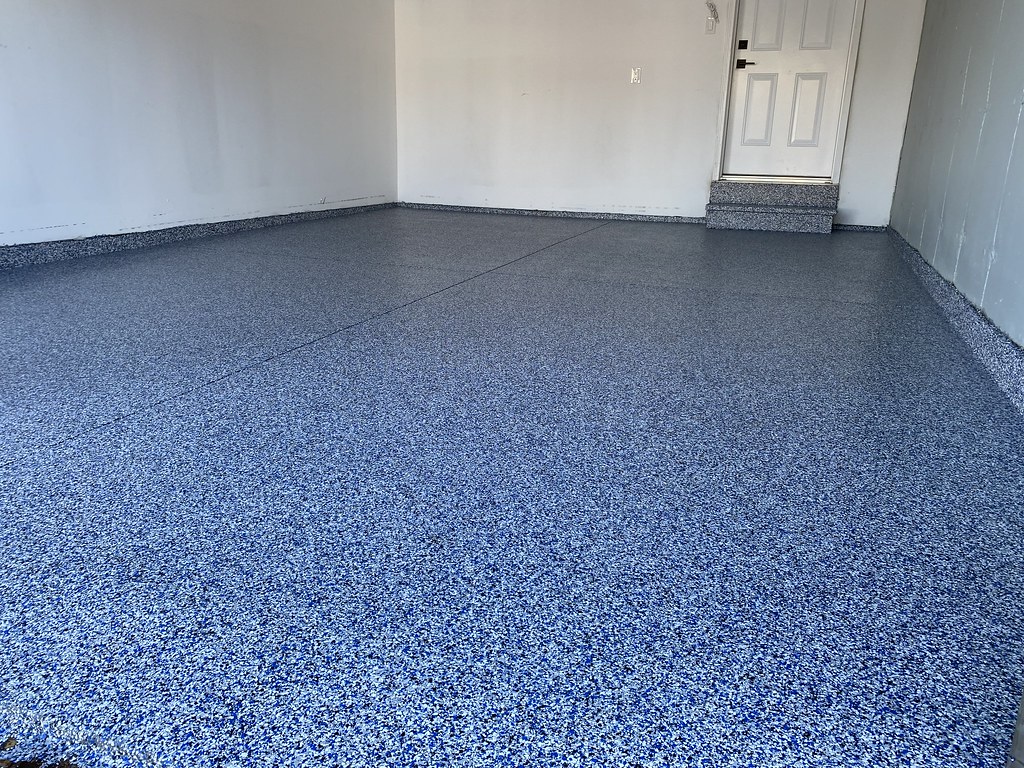Epoxy floor coatings have emerged as a preferred choice for both residential and commercial spaces due to their exceptional durability, versatility, and aesthetic appeal. These coatings are made from a resin and hardener that, when combined, form a tough, chemically resistant surface. In this comprehensive guide, we’ll delve deeper into the benefits, applications, types, installation process, and maintenance of epoxy floor coatings.
Benefits of Epoxy Floor Coatings
- Durability: Epoxy floors are renowned for their resistance to wear and tear, making them ideal for high-traffic areas. They can withstand heavy foot traffic, machinery, and chemical spills.
- Chemical Resistance: Epoxy coatings are impervious to most chemicals, including acids, alkalis, and solvents. This makes them suitable for industrial settings, laboratories, and garages.
- Ease of Maintenance: Epoxy floors are low-maintenance and easy to clean. A simple sweep or mop is often sufficient to keep them looking their best.
- Aesthetic Appeal: Epoxy coatings can be customized with a wide range of colors, textures, and finishes. This allows you to create a unique and visually appealing floor that complements your space.
- Slip Resistance: Epoxy floors can be formulated with additives to enhance their slip resistance, making them safer for both pedestrians and vehicles.
- Sanitation: Epoxy floors are non-porous and resistant to bacteria and mold growth, making them ideal for healthcare facilities, food processing plants, and other environments where sanitation is critical.
- Energy Efficiency: Some epoxy coatings can improve energy efficiency by reflecting heat and light, reducing the need for air conditioning.
Applications of Epoxy Floor Coatings
- Industrial Facilities: Factories, warehouses, and workshops
- Commercial Spaces: Retail stores, offices, and restaurants
- Residential Garages: For added durability and protection
- Educational Institutions: Schools, universities, and libraries
- Healthcare Facilities: Hospitals, clinics, and laboratories
- Food Processing Plants: For hygienic and sanitary environments
- Automotive Workshops: To withstand heavy machinery and oil spills
- Fitness Centers: For durability and slip resistance
- Retail Spaces: To create a visually appealing and durable flooring surface
Types of Epoxy Floor Coatings
- Solid Epoxy: This is the most common type of epoxy coating, offering excellent durability and chemical resistance.
- Flake Epoxy: Flakes are added to the epoxy mixture to create a decorative and slip-resistant surface.
- Metallic Epoxy: Metallic pigments are used to create a shimmering, metallic effect.
- Quartz Epoxy: Quartz chips are added to the epoxy for a textured and durable finish.
- Self-Leveling Epoxy: This type of epoxy flows smoothly to create a level, even surface.
Maintenance Tips
- Regular Cleaning: Sweep or mop the floor regularly to remove dirt and debris.
- Avoid Harsh Chemicals: Use mild cleaning agents and avoid abrasive scrubbers.
- Repair Promptly: If the floor becomes damaged, repair it promptly to prevent further deterioration.
- Protect Against Heavy Loads: Use floor mats or runners to protect the coating from heavy equipment or concentrated loads.
- Inspect Regularly: Conduct regular inspections to identify any signs of wear or damage.
Conclusion
Epoxy floor coatings offer a durable, versatile, and aesthetically pleasing solution for a variety of applications. Their resistance to wear, chemicals, and stains, combined with their ease of maintenance, make them a popular choice for both residential and commercial spaces. By understanding the benefits, applications, types, and maintenance requirements of epoxy coatings, you can make an informed decision about whether they are the right choice for your flooring needs.

